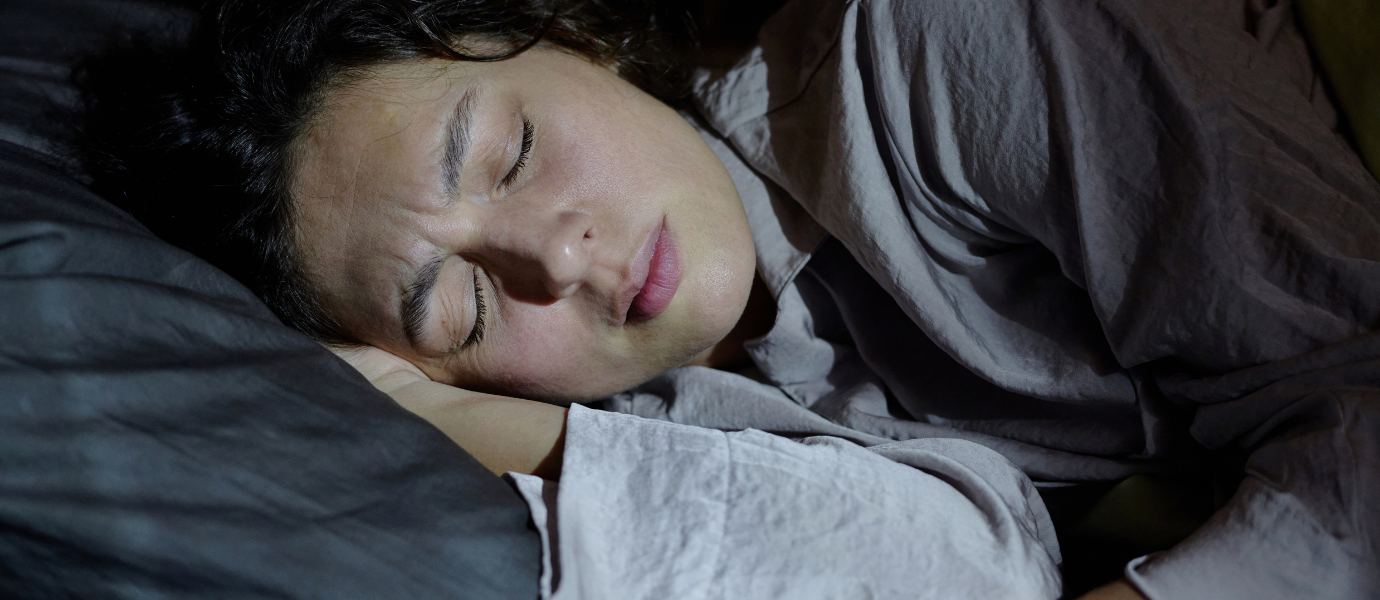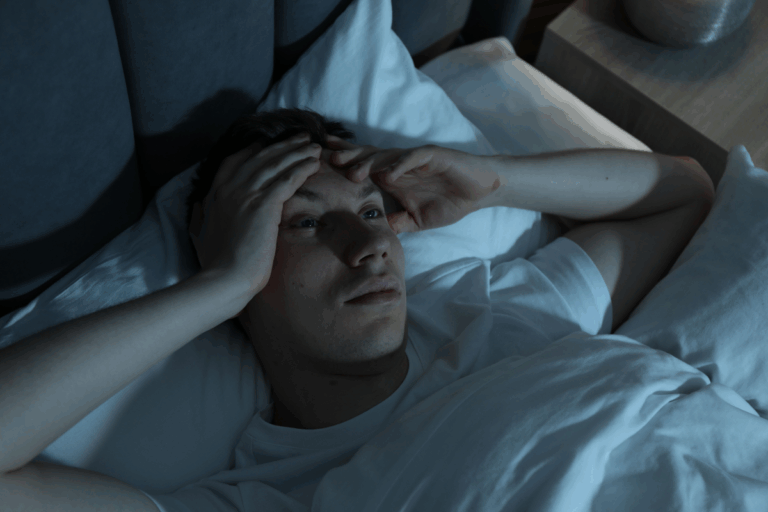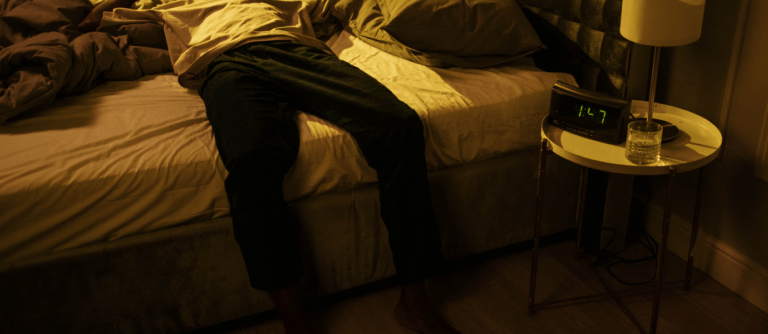
Imagine going to bed for rest but waking up to your partner saying you were “fighting” in your sleep. You don’t remember the punches, the kicks, or the yelling—just a vivid dream that felt too real. This is not just restless sleep. It could be REM Sleep Behavior Disorder (RBD), and it can have a deeper impact on your mental health than most people realize.
What is REM Sleep Behavior Disorder?
Normally, during REM (Rapid Eye Movement) sleep, the brain shuts off muscle activity in a process called atonia. This is why we can dream vividly but don’t physically act them out. In REM Sleep Behavior Disorder, this protective mechanism doesn’t work. Instead, the body enacts the dream—sometimes with mild talking, other times with sudden movements, punches, or even leaping out of bed.
Unlike sleepwalking, which usually happens in deeper stages of non-REM sleep, RBD occurs in the later part of the night when REM is longer. Many people don’t realize it’s happening until a partner points it out, often after getting injured.
Studies suggest about 1% of the general population may have RBD, but this number rises to 2% or more in adults over 50. Since many people never undergo a sleep study, the true prevalence may be even higher.

What Causes REM Sleep Behavior Disorder?
RBD doesn’t have a single cause—it’s a condition with multiple possible roots:
- Neurological changes: The brainstem, which should keep muscles “offline” during REM, doesn’t always function properly. Sometimes this happens without a clear reason, other times it’s linked to neurodegenerative conditions.
- Medications: Antidepressants, particularly SSRIs and SNRIs, can trigger dream enactment behaviors. Research shows up to 6% of antidepressant users may experience RBD-like symptoms.
- Other sleep disorders: Narcolepsy and certain forms of sleep apnea may overlap with or mimic RBD.
- Trauma-related sleep conditions: Some veterans and trauma survivors experience a similar condition called Trauma-Associated Sleep Disorder (TASD), which combines dream enactment with PTSD-like nightmares.
Symptoms of REM Sleep Behavior Disorder
The symptoms often start subtly but become disruptive:
- Dream enactment behaviors: talking, shouting, swearing, punching, kicking, or running.
- Injuries: from falls, hitting furniture, or accidentally hurting a bed partner.
- Timing: most episodes happen in the second half of the night when REM cycles are longer.
- Dream recall: many people remember vivid, action-filled dreams that match their physical movements.
Beyond the nighttime drama, there are daytime consequences: fatigue, irritability, poor focus, and lower tolerance for stress—factors that can worsen mental health.
How Does REM Sleep Affect Mental Health?
Here’s where things get particularly important: REM sleep is vital for emotional regulation.
When REM is disrupted, your brain’s emotional circuits don’t reset the way they should. Without healthy sleep, the amygdala—the brain’s “threat detector”—becomes 60% more reactive to negative experiences the next day. Meanwhile, its connection with the prefrontal cortex (the rational “brakes”) weakens. The result? More irritability, anxiety, and emotional reactivity.
Poor REM sleep has been linked to:
- Higher risk of depression.
- Increased anxiety symptoms due to overactivation of stress pathways.
- PTSD exacerbation, since trauma memories are often replayed during REM sleep.
What are the Effective Treatment Options?
Treatment focuses on both safety and symptom management.

1. Make the Bedroom Safer
- Move sharp objects or furniture away from the bed.
- Place padding on nearby surfaces.
- Use a low mattress or put it on the floor temporarily.
- Some couples choose separate sleeping arrangements if injuries are frequent.
2. Medications
The American Academy of Sleep Medicine recommends:
- Melatonin (immediate-release) at bedtime.
- Clonazepam at bedtime, though it must be used carefully due to risks like morning grogginess or falls in older adults.
- In some cases, rivastigmine patches (more often used for memory conditions) can be effective.
3. Treat Co-Occurring Conditions
- If PTSD or trauma-related sleep problems are present, trauma-focused therapy can reduce both nightmares and dream enactment behaviors.
- If depression or anxiety worsens with poor sleep, addressing those symptoms directly helps restore balance.
Final Thoughts
REM Sleep Behavior Disorder may feel frightening—especially when your sleep becomes unpredictable or even dangerous. But with the right evaluation, safer sleep practices, and treatment options, most people see dramatic improvement.
Sleep should be restorative, not stressful. If you are struggling with sleep disorders and are not able to get restorative sleep, reach out to a sleep specialist or psychiatrist. Getting help isn’t just about safer nights—it’s about protecting your mental health, emotional well-being, and future neurological health.
Responsibly edited by AI
Other Blog Posts in
Animo Sano Psychiatry is open for patients in North Carolina, Georgia and Tennessee. If you’d like to schedule an appointment, please contact us.
Get Access to Behavioral Health Care
Let’s take your first step towards. Press the button to get started. We’ll be back to you as soon as possible.ecovery, together.




